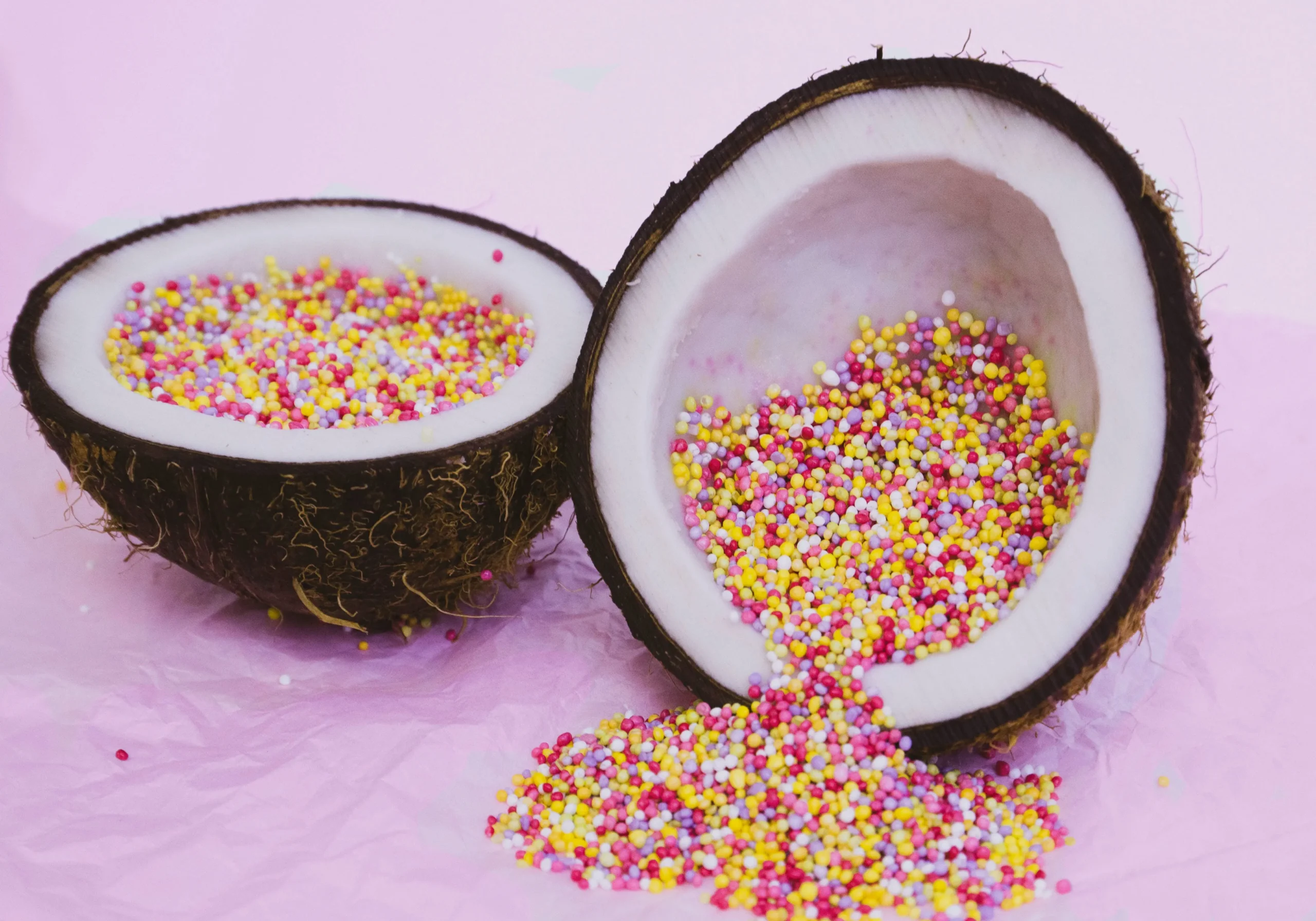Coconut is not just a delicious and refreshing fruit; it also offers a wide range of health benefits that can positively impact your overall well-being. From providing a quick energy boost to promoting heart health and enhancing digestion, coconut has become a popular choice for those seeking natural and nutritious options. In this article, we will explore the top nutrition and health benefits of coconut and why you should consider incorporating it into your daily routine.
1. Medium-chain triglycerides (MCTs) – A Powerful Energy Source
One of the key nutritional components of coconut is its high content of medium-chain triglycerides (MCTs). Unlike long-chain fatty acids found in many other foods, MCTs are quickly metabolized by the body and converted into energy. This makes coconut an excellent choice for athletes or individuals looking for a quick energy boost.
According to registered dietitian nutritionist Laura Iu, MCTs present in coconut meat can be particularly beneficial for athletes due to their ability to provide a rapid source of energy. You can easily incorporate coconut into your diet by adding dried coconut to trail mix, granola, or breakfast cookies, as suggested by Marisa Moore, author of The Plant Love Kitchen.
2. Antioxidant Properties – Fighting Oxidative Stress
Coconut contains several antioxidants that can help combat oxidative stress in the body. Oxidative stress occurs when there is an imbalance between free radicals and antioxidants, leading to cellular damage and increased risk of chronic diseases.
The antioxidant properties of coconut are attributed to its rich content of vitamins and minerals, such as vitamin C, vitamin B6, calcium, and iron. These antioxidants help neutralize free radicals and protect your cells from damage. By incorporating coconut into your diet, you can support your body’s defense against oxidative stress and promote overall health.
3. Healthy Fats – Nourishing Your Body
Coconut is often praised for its high content of healthy fats. While it is true that coconut oil consists mainly of saturated fat, recent research suggests that not all saturated fats are created equal. The saturated fats found in coconut are primarily medium-chain triglycerides (MCTs), which have been shown to have several health benefits.
According to Harvard University’s T.H. Chan School of Public Health, consuming coconut oil in moderation can be part of a healthy diet. However, it is essential to balance your fat intake and opt for unsaturated fats whenever possible. MCT oil, derived from coconut oil but without lauric acid, can be a suitable alternative for higher-temperature cooking and can be used in various recipes.
4. Lauric Acid – A Heart Health Concern
Although coconut oil has gained popularity in recent years, it is important to note that it contains a significant amount of lauric acid, a type of saturated fat. Research from Brazil suggests that lauric acid may have adverse effects on cholesterol levels, potentially increasing the risk of heart disease.
A study conducted in Germany found that replacing coconut oil with unsaturated fats can help reduce both total and LDL cholesterol levels. If you are concerned about your heart health, it may be wise to limit your consumption of pure coconut oil and consider alternative cooking oils.
5. Improved Heart Health – Choosing the Right Fats
While it is true that certain components of coconut, such as lauric acid, may hurt cholesterol levels, it is important to consider the overall composition of coconut and its potential benefits for heart health.
Coconut contains a unique combination of fatty acids, including MCTs, which have been shown to have a neutral or even positive effect on heart health. According to a study published in the Journal of Nutrition, MCTs can increase HDL (good) cholesterol levels and improve overall cardiovascular health.
It is crucial to consume coconut in moderation and as part of a balanced diet that includes a variety of healthy fats. By doing so, you can enjoy the potential heart-healthy benefits that coconut has to offer.
6. Weight Management – Feeling Satiated
If you are looking to manage your weight, coconut can be a valuable addition to your diet. The high fiber content of coconut helps promote feelings of fullness and can potentially reduce overall calorie intake.
Fiber plays a crucial role in regulating appetite and stabilizing blood sugar levels. Coconut, particularly raw coconut meat, is an excellent source of dietary fiber. Incorporating fresh coconut into your diet, such as adding it to smoothies, can provide a tropical twist while aiding in weight management.
7. Enhanced Digestion – Supporting Gut Health
Coconut is rich in fiber, which is essential for maintaining a healthy digestive system. Fiber adds bulk to your stool, promotes regular bowel movements, and helps prevent constipation.
According to registered dietitian nutritionist Laura Iu, the amount of fiber in coconut varies depending on the part of the coconut and its preparation. For instance, a cup of raw coconut meat offers about 7 grams of dietary fiber, while coconut water contains less than 1 gram per cup.
To incorporate coconut into your diet for improved digestion, consider adding fresh coconut to your meals or using coconut flour as a gluten-free alternative in baking.
8. Blood Sugar Regulation – Balancing Glucose Levels
Maintaining stable blood sugar levels is crucial for overall health and the prevention of chronic diseases such as diabetes. The fiber content of coconut can help regulate blood sugar levels by slowing down the absorption of glucose into the bloodstream.
Incorporating coconut into your diet, particularly in its whole form, can provide a steady release of energy and help prevent spikes in blood sugar levels. However, it is important to note that individuals with diabetes or other blood sugar-related conditions should consult with a healthcare professional for personalized dietary advice.
9. Skin and Hair Care – Natural Nourishment
Coconut is not only beneficial when consumed but can also be used externally to promote healthy skin and hair. The natural oils present in coconut have moisturizing properties that can help nourish and hydrate your skin and hair.
Coconut oil is commonly used as a natural moisturizer, hair conditioner, and even as a makeup remover. Its antimicrobial properties may also help combat certain skin conditions, such as acne or fungal infections.
To incorporate coconut oil into your skincare routine, apply a small amount to your skin or hair and massage gently. However, keep in mind that everyone’s skin is unique, and it is always recommended to perform a patch test before applying coconut oil to a larger area.
10. Boosted Immune System – Supporting Overall Health
The nutrients present in coconut, such as vitamins C and B6, contribute to a healthy immune system. Vitamin C is well-known for its immune-boosting properties, while vitamin B6 plays a role in maintaining proper immune function.
Incorporating coconut into your diet can provide a natural source of these essential vitamins, helping to support your immune system and overall health. Whether you choose to enjoy coconut water, coconut meat, or coconut oil, each form offers unique nutritional benefits that can contribute to a robust immune system.
In conclusion, coconut offers a wide range of nutrition and health benefits that can enhance your overall well-being. From its high content of MCTs and antioxidants to its potential positive effects on heart health and weight management, coconut deserves its reputation as a versatile and nutritious fruit. Whether you choose to consume coconut in its various forms or use coconut oil for skin care, incorporating this tropical delight into your daily routine can be a simple and delicious way to support your health.
Remember to consult with a healthcare professional or registered dietitian before making any significant changes to your diet or lifestyle, especially if you have specific health concerns or conditions.




One thought on “10 Top Coconut Nutrition and Health Benefits”